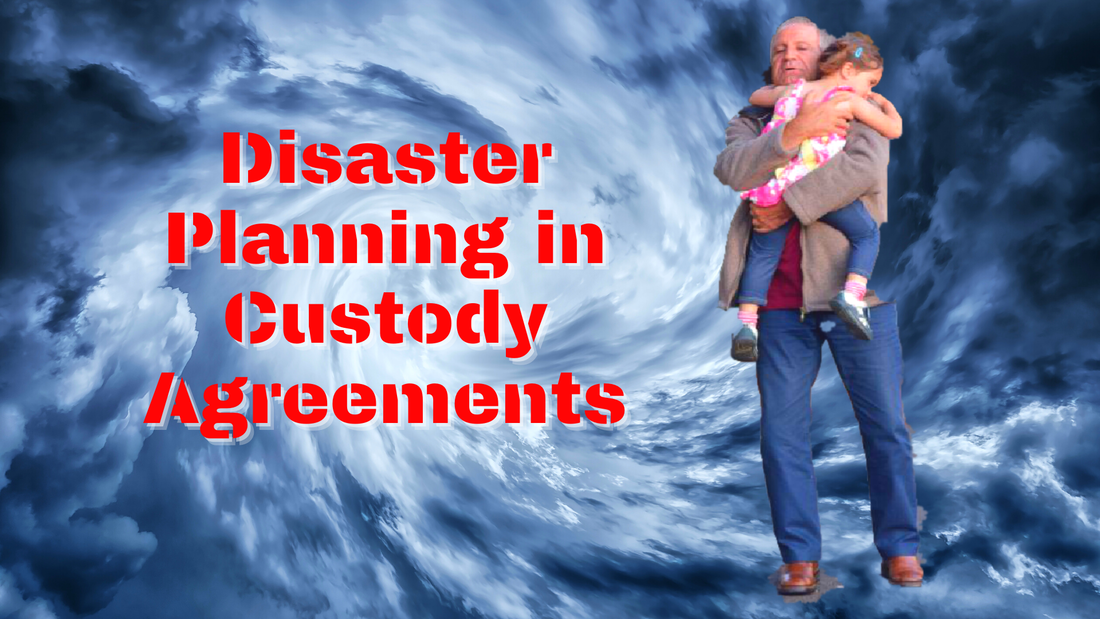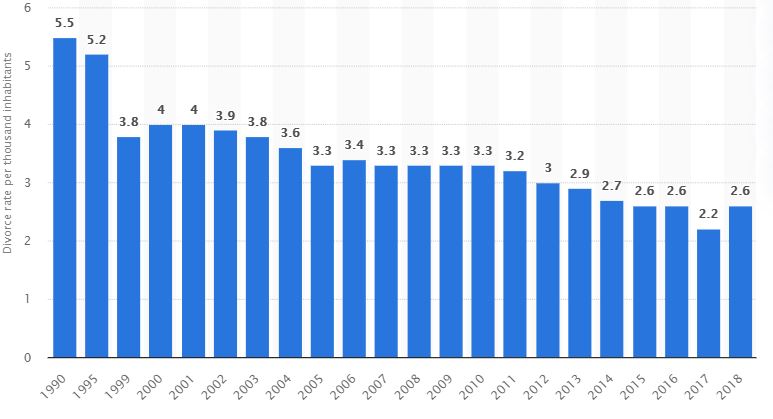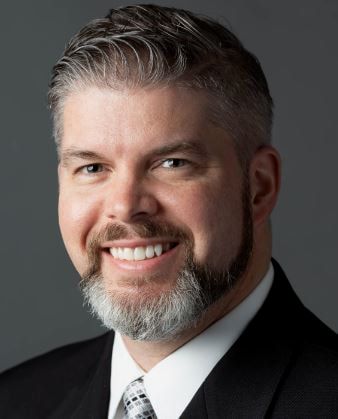|
Two days after Hurricane Hanna touched down in Texas, there are thousands who remain without power. For the Houston and Galveston areas, we go lucky with only intermittent rain. But the storm it is a firm reminder that we are just beginning the 2020 hurricane season. With the disaster of Hurricane Harvey and other devastating hurricanes not yet in the distant past, many of our neighbors are reassessing their emergency plans and stocking up on supplies- even if it means doing so in facemasks. In addition to taking these steps, parents who share custody of their children may also want to reassess their parenting plans and visitation arrangements to ensure that they reflect potential natural disasters.
If you already have a natural disaster provision in your own parenting plan, this may be a good time to reevaluate it and ensure that it is still in your family’s best interest. If, on the other hand this type of clause is not included in your parenting plan, you should consider speaking with an experienced League City child custody attorney who can help you decide whether amending your parenting plan is an appropriate course of action in your case. Emergency Parenting Plan Provisions Natural disasters are devastating and many ways, including relationships with our children. For instance, a hurricane or tropical storm, could make it impossible to safely transport a child to his or her other parent. In other cases, an emergency could make it necessary to evacuate with a child to avoid emergency weather conditions. Parenting plans can include provisions that specifically address these types of situations and detail what co-parents should do when a disaster strikes. For example, some parents choose to include a provision stating that in emergency situations, the parent who is with the child can fail to comply with the standard parenting time schedule and instead, take whatever actions would be in the child’s best interest, including evacuation or sheltering in place. In addition to these types of provisions, many parents also choose to include specific steps that the parties must take during emergencies to keep in contact with the child’s other parent. Even when these directions are not included in a parenting plan, however, it’s still a good idea to communicate regularly with a child’s other parent to discuss what action should be taken in the event that communication is interrupted. Contact an Experienced Child Custody Attorney in League City Keeping one’s children safe should be a parents primary concern at all times, but especially during a natural disaster. Parents who can do this while also informing the child’s other parent of their plans is highly advisable in these cases. However, what’s this has been achieved and the disasters no longer looming, parents should strongly consider obtaining legal advice about any deficiencies in their parenting plans when it comes to disaster planning.
0 Comments
There is a lot of speculation among experts about whether divorce rates will increase after the pandemic is over and once the courts open up and become fully functional. Many couples choose to avoid dealing with their marriage problems but with recent social distancing, are being forced to interact and engage with each other in different ways now that they are stuck at home together. They're having to engage each other without the prior distractions of work away from home and socializing away from home. For good or ill, couples are having to deal with each other now more than ever. If there has been a lack of meaningful time in marriage relationships, there are fewer and fewer excuses to avoid your partner. In some cases this may be just the right medicine needed for a troubled marriage. In others cases, the pandemic may be the straw that breaks the camel's back. In many cases stay-at-home orders are further destabilizing at-risk marriages. COVID Divorces Are Already Trending UP We are all dealing with much higher stress levels due to the strains of financial, physical, and emotional impacts of the pandemic. There is a growing body of evidence to show that spending more time together in close quarters, can increase the chance of divorce. In other countries who reacted to the first wave of COVID-19 with weeks of strict lockdowns, a spike of record high numbers of divorce filings were the result. And although it is debated whether we are now in a second wave of COVID-19 or if we are only seeing one prolonged wave, there is no doubt that domestic situations that are already at risk of divorce, are only going to get worse as the lockdown continues. Here in League City, Texas during the pandemic, we are seeing more people asking for information about getting a Galveston county divorce or a Harris county divorce. But the question for each couple will be whether they have reached an emotional point of no-return. Your Emotional Bank Account Some therapists refer to a couple's relationship like a bank account in which emotional deposits are made and emotional withdrawals are taken. If the couple are depositing loving thoughts, then their emotional bank account is high and they have good feelings towards each other and a healthy marriage. However if they are not meeting each other's needs, or are making bad relationship choices, then with each argument or disappointment, they are making an emotional withdrawal from the bank account. Many people are facing literal financial ruin as the pandemic eats away at their savings and resources. For the majority of these people, they were already living paycheck-to-paycheck with very little savings for emergency situations. Now that the pandemic has stopped or slowed their paycheck, they are experiencing financial ruin. This is very similar to the effect of the pandemic on their marriage relationships. The Pandemic Is Forcing the Issue Even during the best of times, many couples live in quiet misery in loveless marriages. They do so because of social or financial pressures they feel they will have to endure if they get a divorce. They live joyless lives in a broken marriage with little or no savings in their emotional bank accounts. Many are simply biding their time until some event happens when they think the situation will be right, such as when the children leave the home, or when they retire. But they have been able to endure this unhappy existence up to now due to distancing themselves from the other spouse and filling their time with distractions such as going off to work or social interactions with other people. This so far has relieved the tensions of interacting with the other spouse. Now however under the quarantine, the tension is constant and unrelenting. They cannot get away, and there are few distractions. You Have Choices If you are in a marriage relationship where the emotional bank account is running very low, then you must decide if the marriage is worth the investment it will take to revive it. Then you must convince your spouse to make the same investment. If you both want your relationship to remain emotionally solvent, you must take immediate and aggressive action. Just like a couple in financial trouble, you should seek the help of a professional advisor. A counselor (marriage, family, and/or individual) should be consulted and you should follow their advice. And you must make daily deposits into that emotional bank account. However, some accounts are hopelessly overdrawn. When the emotional debts far exceed any hope to getting out of it , then you need admit that your best option for the future is to make a clean break and a fresh start. Financial debt relief is called "bankruptcy" but emotional debt relief is called "divorce". Many couples have reached this stage whether they will acknowledge it or not. If that is the case, then inevitably one or the other spouse will be seeking divorce now or in the future. For those people, the pandemic alone is probably not the reason for divorce, but it has exasperated the situation or at the very least created an environment where avoiding the problem is not longer bearable . Most people thinking about divorce during this outbreak were already severely overdrawn on their emotional accounts before the pandemic. They are now finding themselves at a point where no amount of deposits will make a difference. If you have reached this point and are now simply bidding your time until the pandemic ends before seeking a legal divorce, then you should think again. If you feel that you are forced to endure the current situation, then you are probably wrong. There is no telling how long the pandemic will continue and there are likely to be viable alternatives you have not thought of. If the situation has become intolerable you should seek advice from a professional for your League City divorce to help you generate ideas and options- even while the pandemic is going on. Nobody gets married with the intention of getting a divorce, but for about half of us, divorce is the ultimate end to a marriage. The latest data show that in Texas there are 2.6 divorces per thousand people- this is down significantly from the peak of 5.5 in 1990, but still represents approximately 75,000 divorces! And this rate has been steady for several years. Everyone knows that everything is bigger in Texas. This apparently includes divorces. Why is divorce so prevalent? Is it because rash decisions are made every day and people tend to make bad choices when they enter into something without thinking it through first? Perhaps. I've seen plenty of that in my career. But if that is true, it still brings up the old "chicken or the egg" type of question. Is divorce so prevalent because people make a rash decisions and marry incompatible partners, or is it because they make a rash decision to divorce as means to solve their general dissatisfaction with their lives?
The answer is of course, different for everyone. But it is true that many people mistake the true source of their unhappiness. They may assume a marriage in distress is the cause of their unhappiness, when in fact, it may be that a troubled marriage is just a symptom of distress that originates from other problems such as financial mismanagement, poor communication skills or past psychological trauma. Everyone should take a careful look before they leap into divorce because once started, a divorce may be hard to reign back in. There is no doubt that staying married can be painful, but divorce is pretty painful too. So think carefully, and get all the information you can before you decide to divorce so that you know you are going down the path.
If a court appointed attorney is involved in your custody case, a custody evaluation may be in your future. A custody evaluation can have a profound impact on the outcome of your case. Watch this video for my top 10 tips on how to succeed in a custody evaluations.
School year 2020-2021 is just around the corner. But the Coronavirus outbreak is already here. The Texas Education Administration and most local ISDs have put plans in place that include options to choose either traditional "brick and mortar" school building attendance, or virtual education in a home settling ("homeschooling") - or a combination of the two. Many parents are struggling in how to make a choice between these options.
To help parents in the community, we have designed a FREE interactive video decision tree to help those who are still undecided about what is the best option for their children and families. The interactive video decision tree will lead you through a series of guided questions to help you in deciding whether to enroll your child or children in regular school, of if you think the health and safety of your family is best protected by homeschooling them for the time being. The information does not include all factors, nor is it legal advice. But it may help as a starting point for your decision or discussion with other caregivers.
Other resources to help you
In this video, Texas family law attorney Sean Y. Palmer introduces you to an innovative and low cost option to get your divorce or family law matter to court. It’s called “limited scope representation”, and it just may be the future of legal services in Texas. America is in the grip of the deadliest viral outbreak in a century and it is happening in an election year during the most divisive political eras since the Civil War. It’s a perfect storm.
Swirling in this political maelstrom is the hot wind of social media debates over masks, social distancing, opening up the economy, individual rights and public health. There are a few people blowing hard in one or the other direction. But most of us are standing in the eye of the storm feeling pulled in all directions. It seems like we are being force to make a choice between being safe from a potentially deadly virus or protecting our economic well-being and our right to not have the government dictate our private lives. It seems sometimes like we are being ask to choose between life or liberty itself. In the last few months, the government, in the name of protecting lives from the COVID-19 virus, has implemented extraordinary restraints on many of our fundamental liberties. These include the Free Exercise Clause of the First Amendment, the First Amendment Right to Assembly ; the right to interstate travel under the Commerce Clause; Privacy rights under the 4th Amendment, and for those lingering in prisons and jails, the right to a speedy trial under the 6th Amendment. Are all these violations of our liberties even legal under the U.S. Constitution? Yes actually. But only for a limited manner and a limited time. During public health emergencies, state and local governments have the authority to enact measures to protect the welfare, health, and safety of their citizens. While in normal times these would be condemned as an infringement of our constitutionally protected rights, it is within the authority of the states' police powers under the 10th Amendment for the government to take extraordinary actions in extraordinary times. This clause in the 10th Amendment gives government in times of crisis the power to abridge certain individual rights we would normally expect to be unbreakable. Specific to our times, the police powers under the 10th Amendment gives states the authority to force isolation for public health purposes. As recent as May 30, 2020, the U.S. Supreme Court has affirmed that states do have the power to force isolation on citizens for their health and safety. Chief Justice John Roberts in his concurring opinion recognized the uniqueness of our "extraordinary health emergency" that is “fraught with medical and scientific uncertainties” as well as the highly contagious nature of the virus, stating that leeway should be given to states power to protect health and safety. But government's police power under the 10th Amendment is not a blank check. The government's restrictions on our liberties must pass the legal test we call "strict-scrutiny" analysis. Government restrictions when challenged in court, must pass the test of being both "a compelling government interest” and also being the “least restrictive means” of achieving the government's legitimate purpose in protecting the public. And who will be the ones putting the government's restrictions on our liberties to this strict-scrutiny test? It will be your friendly neighborhood lawyer. Lawyers have a job - it is called vigilance. Thurgood Marshall once said, “grave threats to liberty often come in times of urgency.” This has never been more true than today. Recent history confirms Marshall's axiom that when government is given authority to curtail our rights during times of crisis, it is very hard to get it back from the government when the crisis has ended. One example is the huge expansion of government surveillance of the public after 9/11. Prior to 2001 the government would not be tolerated to do the level of spying on U.S. citizens it was granted under the so called Patriot Act - a law which was passed by Congress on a promise that the spying would only be temporary. Yet 19 years after the terrorist attacks, that surveillance program continues to this day. General John Stark's famous statement of fierce dedication to liberty, which became the motto for the State of New Hampshire, is "Live Free or Die". But it is doubtful that he meant that to be taken as literally as some do today. Even during a global pandemic, we do not have to make such a drastic choice - nor should we allow anyone to make us think we do. The preamble to the U.S. Constitution reminds us that it is our God-given right to have BOTH life and liberty (and the pursuit of happiness). For life and liberty to both flourish, there must be a delicate balance struck between the necessary restrictions on certain actions during security, health and safety emergencies, and the full exercise of personal liberties we should expect as the norm in all other times. As advocates for citizens who seek to limit government authority, lawyers have a responsibility to be sure the government doesn't abuse or upset that delicate power balance. Attorneys - often maligned and put down by the public, are actually the guardians of citizen power against an overreaching government that would take that power away. As we try to navigate the rapidly changing environment of the pandemic, where new technologies and treatments will constantly shift the need to restrict liberties we once enjoyed, it is up to lawyers and policy makers and the citizens they serve, to ensure that measures designed to protect us don't permanently reduce our fundamental rights. If we do not stay vigilant, we may forever lose our liberty. And if that is allowed to happen, then we would compound the tragedy of this pandemic with the travesty of oppression. Instead, lets make clear headed decisions based on the best available information. Let's put aside our selfish desires and fears and think equally about what is good for neighbors and our nation both today and in the future. We don't have to make a choice to "Live Free or Die". Let's survive today, but let's also preserve our freedoms for tomorrow. |
Need more information about this or other family law topics in Texas?
Click the button below to book a FREE ATTORNEY CONSULTATION (832) 819-3529
Attorney Sean Y. Palmer has over 20 years of legal experience as a Texas Attorney and over 25 years as a Qualified Mediator in civil, family and CPS cases. Palmer practices exclusively in the area Family Law and handles Divorce, Child Custody, Child Support, Adoptions, and other Family Law Litigation cases. He represents clients throughout the greater Houston Galveston area, including: Clear Lake, NASA, Webster, Friendswood, Seabrook, League City, Galveston, Texas City, Dickinson, La Porte, La Marque, Clear Lake Shores, Bacliff, Kemah, Pasadena, Baytown, Deer Park, Harris County, and Galveston County, Texas.
Call (832) 819-3529 If you live in the Houston area and would like to consult with one of our attorneys, please leave your information below.Archives
July 2024
Categories
All
|
The Palmer Law Firmwww.thepalmerlawfirm.com
(c) 2024 Sean Y. Palmer |
DISCLAIMER:
This website is for educational and informational purposes only and is not, nor is it intended to be, legal advice. Viewing of this website does not create an attorney-client relationship. All legal matters should be discussed with a licensed attorney before you take any action. You should consult with an attorney for advice for your individual situation. Sean Y. Palmer is the attorney responsible for the content of this site. DATA NOTIFICATION: Pursuant to the Health Insurance Portability and Accountability Act, and the Texas Medical Records Privacy Act of the Texas Health and Safety Code, consumers are noticed that their protected healthcare information may be transmitted electronically. |




 RSS Feed
RSS Feed